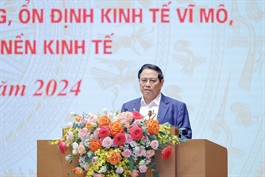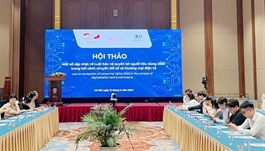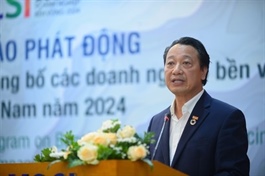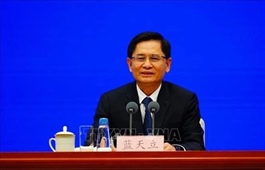Boosting knowledge for Vietnamese SMEs through collaboration
Boosting knowledge for Vietnamese SMEs through collaboration
An online training project to boost Vietnamese small and medium enterprises has recently been initiated by the Ministry of Planning and Investment (MPI) and the Việt Nam Association of Small and Medium Enterprises (SMEs).

Workers packaging products at a plant of the Yen Sao Xu Thanh Production and Trading Company. — VNA/VNS Photo |
The project, themed 'Elevating Knowledge for Vietnamese Small and Medium Enterprises', is active on www.smelearning.vn.
It aims to enhance the training and development of entrepreneurs and businesses across the country, in line with the Government's target of creating a thousand courses by 2025 and five times that number by 2035.
Around 1.5 million businesses nationwide already have access to quality, free courses tailored to their development plans. Over 6,000 SME workers, including owners, managers and employees, have benefited from these training programmes.
The project involves partnering organisations and sponsors who contribute through content sharing, digital services and new technology platforms.
It encourages the participation of ministries, local business associations and experts to create an effective learning platform for SMEs. The project will provide a conducive learning environment, foster a learning culture and enhance sustainable development capabilities for Vietnamese SMEs.
To ensure the effective implementation of the project, Deputy Minister of Planning and Investment Trần Duy Đông suggests that ministries, local authorities, associations and supportive organisations, widely publicise how to register for the project's programmes and courses.
Localities are encouraged to actively participate and collaborate with associations to promote continuous learning and enhance business management capabilities.
Nguyễn Văn Thân, Chairman of the Việt Nam Small and Medium Enterprise Association, hailed the project as a significant step for businesses, enabling them to engage in government administrative reforms, creating a digital environment to address their individual needs.



























